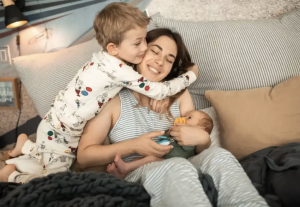
In this article written as a master’s thesis by Courtney Lincoln, they go on to describe the differences in emotional regulation ability in children that come from different home lives and have different levels of care. Lincoln explains that children who are raised by single mothers and children who were receiving extra attention through a Head Start program had a better ability to regulate their emotions. On the contrary, children who were raised with a married mother or were not receiving attention from a program like Head Start had a harder time regulating their emotions and this was because of less attentiveness by the mother to understand her child’s emotional needs.
Lincoln goes on to discuss the main emotional regulation that children struggled with: emotional lability. Emotional Lability is characterized by unstable and sudden mood changes. For example, if a kid were to be enjoying a game but quickly gets very frustrated when something does not go their way, this would be emotional lability or a labile mood. Lincoln addressed this as an issue revolving around mothers’ abilities to help their child regulate their emotions. Showing a correlation between mother-child interactions and the emotional awareness that their children have.
Overall, this article dives deeper into how attentiveness and recognition of emotions play into how children interact with other children and adults. If parents are not encouraging work on emotional regulation, and helping their young children work through big feelings, their child will have a harder time recognizing these problems and finding ways to solve them. Parenthood is about guiding your child through this world they now must navigate and, especially when they get to school age, they need to be well prepared to understand themselves and the world around them. Lincoln does a great job of describing the key points of this study and elaborating even more on the impact of parental interactions on kids’ emotional regulation.
To read more, click here!
Jenna Coplon
UConn KIDS Research Assistant